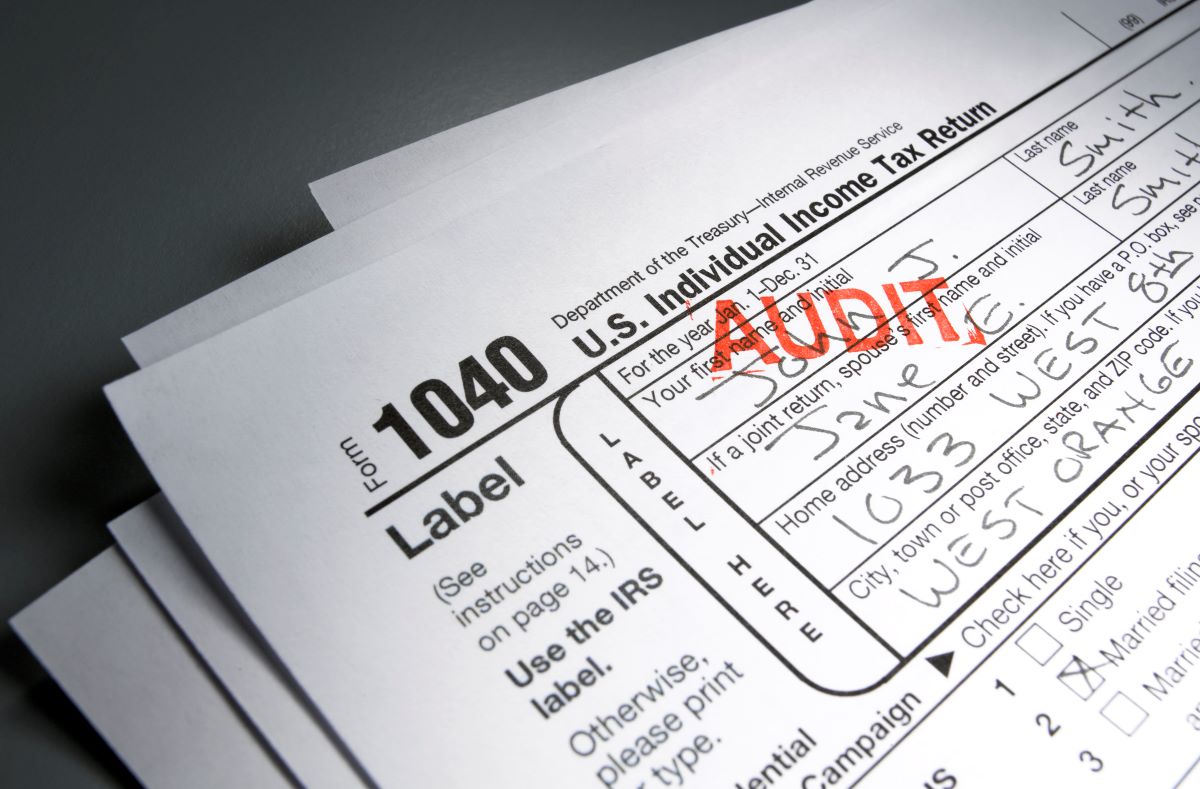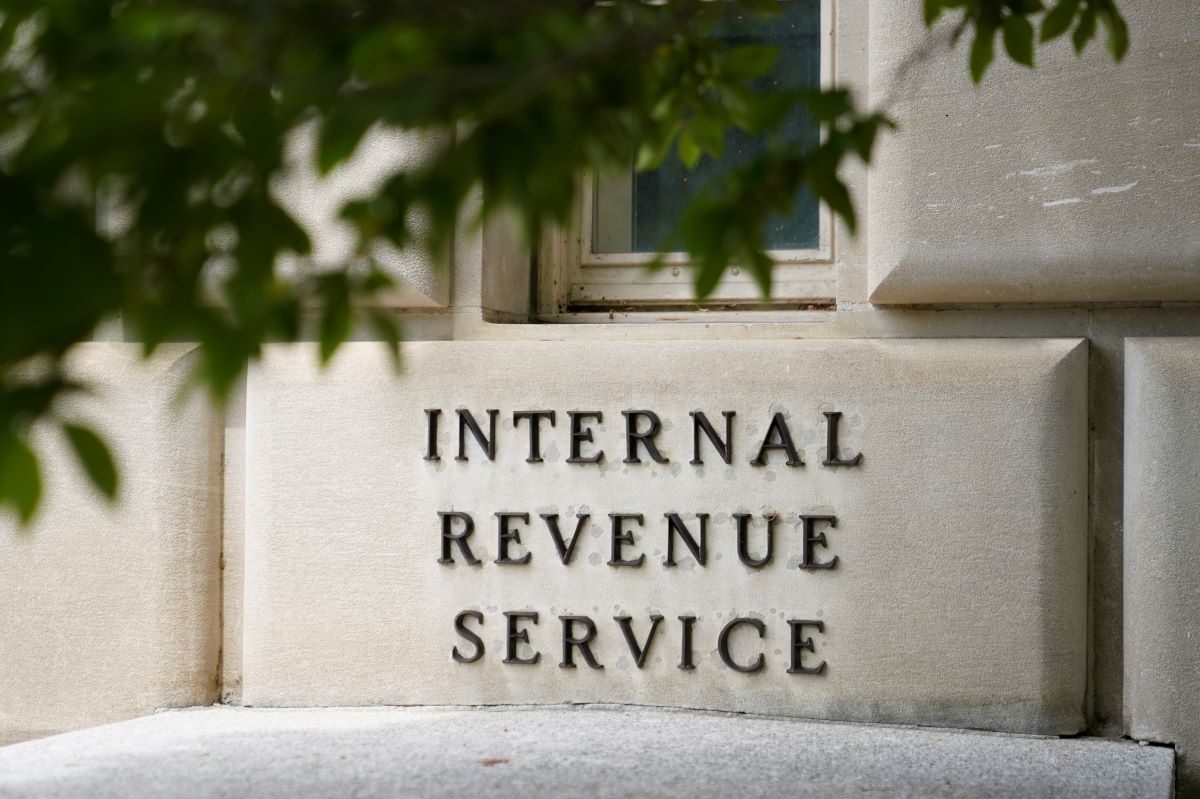

Finance
How Much Do IRS Auditors Make?
Published: October 31, 2023
Discover the potential earnings of IRS auditors and gain insight into the finance industry with this informative guide.
(Many of the links in this article redirect to a specific reviewed product. Your purchase of these products through affiliate links helps to generate commission for LiveWell, at no extra cost. Learn more)
Table of Contents
Introduction
IRS auditors play a crucial role in ensuring compliance with tax laws and regulations, and their work is vital in maintaining the integrity of the tax system. As financial guardians of the government, these professionals examine financial records, conduct audits, and make determinations regarding the accuracy and legitimacy of taxpayer filings. But have you ever wondered how much IRS auditors make?
In this article, we will delve into the average salary of IRS auditors, the factors that affect their salaries, the education and experience requirements for this profession, the benefits and perks they enjoy, and the job outlook for aspiring auditors.
Before we dive into the specifics, it’s essential to understand that IRS auditors are federal employees who work for the Internal Revenue Service (IRS), a division of the U.S. Department of the Treasury. Their primary responsibility is to ensure that individuals and businesses comply with tax laws by conducting audits, reviewing financial records, and identifying potential discrepancies or fraudulent activities.
Now, let’s explore how much IRS auditors earn and what factors contribute to their salaries.
Average Salary of IRS Auditors
The salary of IRS auditors varies depending on several factors, including their level of experience, education, geographic location, and job performance. On average, the annual income of IRS auditors ranges from $56,000 to $99,000.
Entry-level auditors typically start at the lower end of the salary scale, while those with more experience and expertise can earn salaries towards the higher end. The exact salary within this range will also depend on the auditor’s grade level, which is determined by their years of service and performance evaluations.
It’s important to note that IRS auditors receive compensation not only in the form of a base salary but also through various bonuses and allowances. These additional benefits can significantly impact their overall earnings.
While the average salary provides a rough estimation, it’s crucial to consider the various factors that can affect an IRS auditor’s earnings.
Factors Affecting IRS Auditor Salaries
1. Experience: As with many professions, experience plays a significant role in determining an IRS auditor’s salary. Those with more years of experience and a proven track record of success are rewarded with higher salaries.
2. Education: IRS auditors are required to have at least a bachelor’s degree in accounting, finance, or a related field. However, those with advanced degrees such as a master’s or a Certified Public Accountant (CPA) certification may earn higher salaries.
3. Geographic Location: The cost of living and demand for IRS auditors can vary by location. Urban areas and areas with higher living costs tend to offer higher salaries to attract and retain qualified professionals.
4. Grade Level: IRS auditors are classified into different grade levels, ranging from GS-5 to GS-13. Each grade level corresponds to a specific salary range, and auditors can progress from one level to another with experience and proficiency.
5. Performance: Exceptional job performance, exceeding expectations, and meeting or exceeding audit targets can lead to performance bonuses and salary increases.
By considering these factors, IRS auditors can negotiate their salary and evaluate potential career opportunities that align with their goals and financial expectations.
Factors Affecting IRS Auditor Salaries
The salary of IRS auditors can be influenced by various factors, including experience, education, geographic location, job performance, and additional certifications. Understanding these factors can provide insight into the potential earning potential and career growth opportunities within this field.
1. Experience: Experience is a crucial factor in determining an IRS auditor’s salary. As auditors gain more years of experience and develop a strong track record of success, they become eligible for promotions, higher grade levels, and increased salaries. Entry-level auditors typically start at a lower salary range and can progress their way up through years of experience.
2. Education: The level of education can also impact an IRS auditor’s salary. While a Bachelor’s degree is the minimum requirement for entry into this profession, having an advanced degree such as a Master’s in Accounting or a Certified Public Accountant (CPA) certification can lead to higher-paying positions within the IRS. Additional certifications can also enhance an auditor’s expertise and marketability, potentially resulting in better salary prospects.
3. Geographic Location: The cost of living and demand for IRS auditors can vary significantly by geographic location. Urban areas and regions with a higher cost of living generally offer higher salaries to compensate for the increased expenses. For example, IRS auditors working in major metropolitan areas like New York City or San Francisco might earn more compared to those in smaller cities or rural areas.
4. Grade Level: IRS auditors are classified into different grade levels, ranging from GS-5 to GS-13. Each grade level corresponds to a specific salary range, with higher grades reflecting higher levels of responsibility and experience. Advancement to higher-grade levels is typically based on performance, experience, and time in service.
5. Job Performance: Exceptional job performance can be rewarded with bonuses and salary increases. Meeting or exceeding audit targets, consistently producing high-quality work, and demonstrating strong leadership skills can all contribute to a higher salary as auditors progress in their careers. Regular performance evaluations play a crucial role in determining salary adjustments and promotions.
By considering these factors, aspiring IRS auditors can make informed decisions about their career paths, understand the potential for salary growth, and take steps to enhance their earning potential through education, experience, and professional development opportunities.
Education and Experience Requirements for IRS Auditors
Aspiring IRS auditors must meet specific education and experience requirements to qualify for this profession. These requirements are designed to ensure that auditors have the necessary knowledge and skills to effectively carry out their duties.
Education: A minimum of a bachelor’s degree is typically required to become an IRS auditor. While the IRS does not specify a specific field of study, degrees in accounting, finance, or a related discipline are highly recommended. These programs provide a solid foundation in financial principles, tax laws, and auditing practices. Some auditors may also choose to pursue advanced degrees, such as a Master’s in Accounting or a Certified Public Accountant (CPA) certification, to enhance their expertise and career prospects.
Experience: While not always a strict requirement, relevant work experience can greatly enhance an individual’s chances of becoming an IRS auditor. Experience in accounting, finance, auditing, or a related field can provide valuable insights into financial processes and help applicants stand out during the hiring process. Many aspiring auditors gain experience through internships, entry-level positions in accounting firms, or government agencies prior to applying for IRS auditor roles.
Additional Requirements: In addition to education and experience, candidates for IRS auditor positions must pass a rigorous background investigation. This investigation includes a thorough review of the applicant’s financial history, criminal record, and overall suitability for the position. Candidates must also have U.S. citizenship and meet specific age and physical requirements set by the IRS.
Upon meeting these requirements, aspiring auditors can apply for positions with the IRS and undergo a competitive selection process, which often includes written exams, interviews, and assessments. Those who successfully complete the selection process are offered positions within the agency.
While the specific requirements may vary slightly depending on the individual job posting and level of the position, a combination of education, relevant experience, and a successful background investigation are key factors for becoming an IRS auditor.
It’s worth noting that the IRS also provides ongoing professional development opportunities for auditors to further enhance their skills and knowledge. These professional development programs ensure that auditors stay up to date with changes in tax laws and regulations, as well as emerging auditing techniques.
In summary, IRS auditors must possess a minimum of a bachelor’s degree, preferably in accounting or a related field. Relevant work experience and a successful background investigation are also important factors in becoming a qualified IRS auditor.
Benefits and Perks of Being an IRS Auditor
Working as an IRS auditor comes with a range of benefits and perks that make it an attractive career choice for many individuals. These benefits go beyond financial compensation and contribute to a fulfilling and rewarding work experience. Let’s explore some of the benefits and perks that IRS auditors enjoy:
Competitive Salary: IRS auditors are well compensated for their work. Along with a base salary, they may receive performance bonuses, cost of living adjustments, and promotions based on their experience and job performance.
Government Benefits: As federal employees, IRS auditors are entitled to a comprehensive benefits package, including health insurance, retirement plans, and paid time off. These benefits help provide financial security and stability for auditors and their families.
Job Security: Government positions, including IRS auditors, typically offer high job security. The demand for IRS auditors remains relatively stable, as tax compliance is an ongoing need for the government. This stability provides peace of mind and long-term career opportunities.
Work-Life Balance: The IRS recognizes the importance of work-life balance and promotes flexible work arrangements. IRS auditors typically enjoy regular work hours, with limited overtime or weekend work required. This allows them to maintain a healthy work-life balance and spend quality time with family and pursue personal interests.
Professional Development: The IRS places a strong emphasis on professional development to ensure auditors’ continuous growth and success. Auditors have access to various training programs, workshops, and seminars that help them stay updated with changes in tax laws, regulations, and auditing practices. Continuous learning and skill development opportunities not only benefit auditors in their current roles but also enhance their long-term career prospects.
Career Advancement: Along with professional development, the IRS offers numerous opportunities for career advancement. Auditors can progress through different grade levels within the organization, earning higher salaries and assuming roles with more responsibilities. The IRS also supports career mobility, allowing auditors to explore diverse areas within the agency and take on leadership positions.
Impactful Work: IRS auditors play a pivotal role in ensuring tax compliance, which contributes to the overall functioning of the government and supports funding for public programs and services. Knowing that their work has a direct impact on society can be highly rewarding for auditors.
Job Satisfaction: For individuals who enjoy conducting thorough analyses, uncovering financial irregularities, and ensuring fairness in tax compliance, being an IRS auditor can provide a sense of fulfillment. The work is intellectually challenging and offers opportunities to utilize analytical skills to make informed decisions.
Overall, the benefits and perks of being an IRS auditor extend beyond financial compensation. Job security, work-life balance, professional development opportunities, and the fulfillment of contributing to the integrity of the tax system make it a satisfying career choice for those interested in finance and auditing.
Job Outlook for IRS Auditors
The job outlook for IRS auditors is generally stable, with a consistent demand for professionals who can ensure individuals and businesses comply with tax laws. The United States tax system is complex and constantly evolving, requiring skilled auditors to maintain its integrity. Here are some key factors affecting the job outlook for IRS auditors:
Continued Need for Tax Compliance: Tax compliance is an ongoing priority for the government. As long as individuals and businesses are required to file tax returns, there will be a need for IRS auditors to ensure accuracy and adherence to tax laws. The demand for auditors remains steady, providing a stable job market for those interested in this profession.
Changing Tax Laws and Regulations: The IRS continuously updates and revises tax laws and regulations in response to evolving economic and societal needs. These changes create a demand for auditors who are knowledgeable in the latest tax guidelines and can help individuals and businesses navigate complex tax obligations.
Retiring Workforce: As experienced auditors retire, there is a need to fill their positions with new talent. This creates opportunities for aspiring auditors to enter the field and develop their careers. Additionally, as the IRS seeks to maintain a diverse and skilled workforce, efforts are made to recruit individuals from different backgrounds and experiences.
Advancement Opportunities: The IRS provides various career advancement opportunities for auditors. By demonstrating expertise, leadership skills, and a track record of success, auditors can progress through different grade levels and assume managerial or specialized roles. Advancement opportunities contribute to job satisfaction and long-term career growth within the organization.
Technology and Automation: The increasing integration of technology in tax processes has the potential to impact the role of auditors. While automation may streamline routine tasks, auditors with strong analytical and critical thinking skills will continue to be in demand for complex financial analysis, decision-making, and audit risk assessment.
Increased Focus on Data Analytics: In recent years, there has been a growing emphasis on data analytics in auditing practices. As auditors leverage technology and data analysis techniques, there is a need for professionals skilled in data interpretation, pattern recognition, and identifying potential fraud or irregularities in financial records. This trend opens avenues for auditors to enhance their skills and adapt to the evolving requirements of the profession.
Ethical Compliance and Fraud Prevention: With the increasing focus on ethical business practices and the prevention of fraud, there is a continued need for auditors to validate the accuracy of financial information and detect any fraudulent activities. IRS auditors play an essential role in upholding ethical standards and ensuring fairness in tax compliance.
In summary, the job outlook for IRS auditors is stable, with a consistent demand for professionals who can uphold tax compliance. The evolving landscape of tax laws, advances in technology, and the need for skilled auditors in data analytics and fraud prevention contribute to the long-term viability and growth opportunities within this field.
Conclusion
IRS auditors play a vital role in maintaining the integrity of the tax system, ensuring individuals and businesses comply with tax laws and regulations. Understanding the factors that influence their salaries, such as experience, education, and geographic location, provides insight into the earning potential of this profession.
Becoming an IRS auditor requires a minimum of a bachelor’s degree, preferably in accounting or a related field, and relevant work experience. Meeting these requirements, along with a successful background investigation, qualifies individuals for a career as an IRS auditor.
Being an IRS auditor comes with a range of benefits and perks, including competitive salaries, comprehensive government benefits, job security, and a healthy work-life balance. The profession offers opportunities for professional development, career advancement, and job satisfaction, as auditors contribute to the functioning of the government and the fairness of the tax system.
The job outlook for IRS auditors is generally stable, with a continuous need for tax compliance and a changing landscape of tax laws and regulations. Advancements in technology and the increased focus on data analytics and fraud prevention create opportunities for auditors to enhance their skills and adapt to evolving industry requirements.
In conclusion, a career as an IRS auditor offers a rewarding and fulfilling path for individuals interested in finance, auditing, and ensuring tax compliance. With competitive salaries, job security, and opportunities for growth, becoming an IRS auditor can lead to a successful and meaningful career in the field of taxation.














